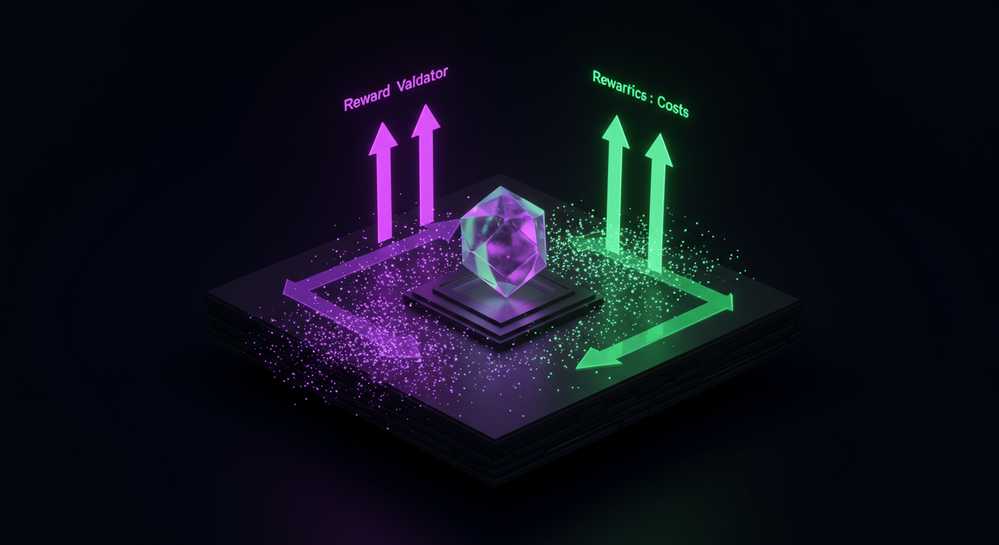
What is a Solana validator and why is it important
The Solana network is renowned for its incredible speed and low transaction costs, but what powers this performance? At its heart are dedicated participants running specialized hardware. Understanding what is solana validator is key to grasping how the entire ecosystem functions, maintains its security, and achieves consensus. These validators are the backbone of the network, ensuring every transaction is processed accurately and efficiently, making Solana a powerhouse in the blockchain space.
Contents
The core function of a Solana validator

At its core, a Solana validator is a computer that serves as the engine of the network, running specialized software to maintain the blockchain. Its primary responsibility is to uphold the integrity and security of the entire ecosystem. Validators achieve this by performing two critical tasks: processing transactions and participating in the network’s unique consensus mechanism. Unlike a simple node that only observes the chain, a validator is an active participant that votes to confirm the validity of all new blocks.
Executing two critical network tasks
The core function of a Solana validator is divided into two main responsibilities that ensure the network runs smoothly and securely. These tasks are fundamental to Solana’s high-speed performance.
- Processing transactions: When a user initiates a transaction, it is sent to the network. A designated leader validator for a specific time slot collects these transactions, orders them, and bundles them into a new block to be added to the chain.
- Securing the network: Other validators then verify the transactions within this proposed block and vote on its validity. This process uses a combination of Proof of Stake (PoS) and Proof of History (PoH) to reach a consensus, ensuring all participants agree on the state of the ledger.
To guarantee honest participation, validators must stake their own SOL tokens as collateral. This economic incentive is vital. If a validator acts maliciously, they risk having their stake slashed, or confiscated. This financial penalty ensures they are motivated to act in the best interest of the network.
How Solana validators differ from other networks
While all blockchain validators aim to secure a network, the implementation on Solana includes distinctive features designed to maximize speed. These differences are most apparent when examining its consensus mechanism and hardware expectations. Understanding these distinctions is key to grasping what makes a Solana validator unique in the crypto landscape.
The role of Proof of History
Solana’s key innovation is Proof of History (PoH). It is not a consensus mechanism itself but a decentralized clock providing a verifiable passage of time. Before transactions are bundled into a block, they are timestamped using a cryptographic function. This creates a chronological record that validators can trust without extensive communication. This system enables the parallel processing of transactions, a core reason Solana can achieve high throughput compared to the sequential processing on networks like Ethereum.
Hardware requirements and performance focus
A direct result of this high-performance design is the need for powerful hardware. Running a Solana validator requires a high-end server with significant CPU cores, substantial RAM, and fast storage. This contrasts with other networks where participation is possible with more modest equipment. This trade-off deliberately prioritizes network speed and efficiency over making it accessible for a broader range of participants, creating a system built for scale.
The economics of running a validator

Running a Solana validator is not just a technical task; it is an economic endeavor with significant incentives and risks. The model is designed to reward validators for their contribution to the network’s health while penalizing poor performance. This financial layer is crucial for ensuring the network remains secure and efficient, answering a key part of what a Solana validator does.
Earning rewards through inflation and fees
Validators earn revenue from two primary sources that compensate them for their operational costs and contributions:
- Staking Rewards: A portion of the network’s inflation, in the form of newly issued SOL, is distributed to validators and their delegators. A larger stake increases a validator’s chance to produce blocks and earn more rewards.
- Transaction Fees: Validators also collect a share of fees from the transactions they process. While individual Solana fees are low, the high transaction volume can accumulate into a significant income stream.
Understanding slashing and its risks
To enforce honest behavior, the Solana network implements a penalty system known as slashing. If a validator acts maliciously by approving an invalid block, a portion of its staked SOL can be confiscated. While this is a major deterrent, validators also face risks from downtime, which reduces rewards and can damage their reputation among delegators. These factors highlight the complex investment risks and rewards involved.
Requirements to become a Solana validator

Becoming a Solana validator is a serious commitment that demands significant technical and financial resources. This role is not suitable for a standard home computer. The requirements are stringent to ensure the network remains fast, reliable, and secure. Understanding these prerequisites is vital for anyone considering this role and completes the picture of what a Solana validator truly is.
- High-performance hardware: Validators must operate servers with specific minimums. This typically includes a modern CPU with at least 12 cores, 128 GB of RAM, and extremely fast NVMe SSD drives to handle the blockchain’s rapid state changes.
- Technical expertise: A deep understanding of Linux system administration, network security, and server maintenance is crucial. Operators are responsible for setting up, monitoring, and troubleshooting their own infrastructure to ensure maximum uptime.
- Sufficient SOL stake: While no official minimum exists, a substantial amount of staked SOL is needed to be profitable and participate effectively in consensus. This includes both self-staked funds and delegated SOL from other token holders.
- High-bandwidth connection: A stable, high-speed internet connection is mandatory to process the massive flow of transaction data and communicate with other nodes.
A Solana validator is more than just a server; it is a fundamental pillar supporting the network’s speed, security, and decentralization. By processing transactions and participating in consensus, validators ensure the ecosystem thrives. This vital role, while demanding, is essential for the future of high-performance blockchain applications. To explore more advanced crypto tools and insights, check out Ton Trading Bot.



